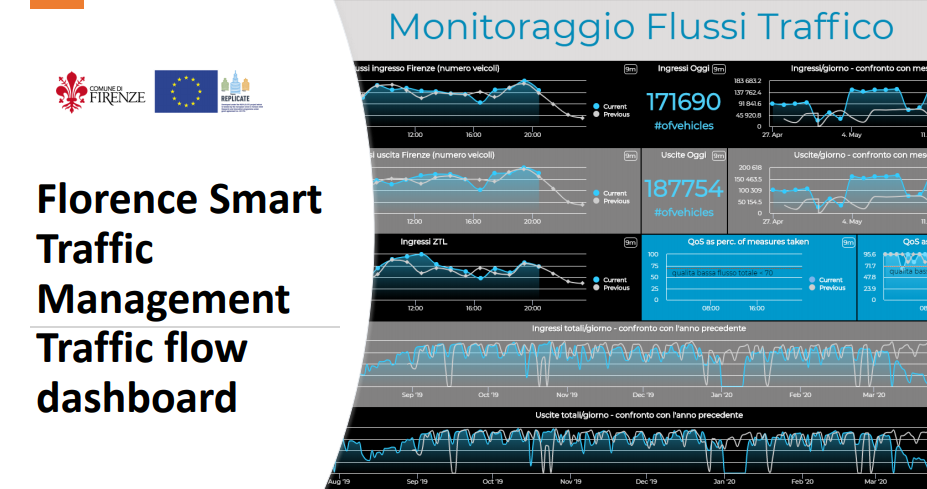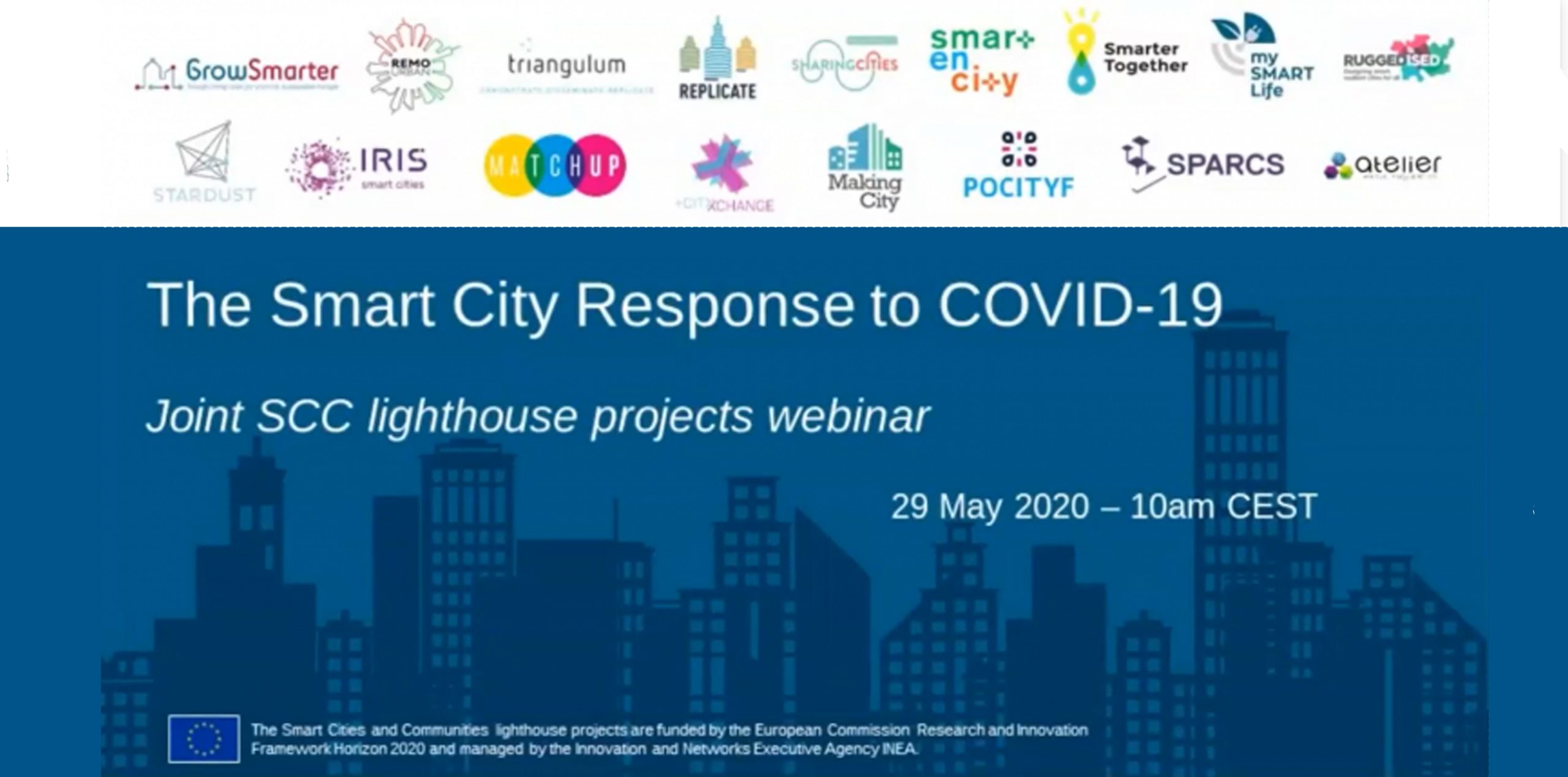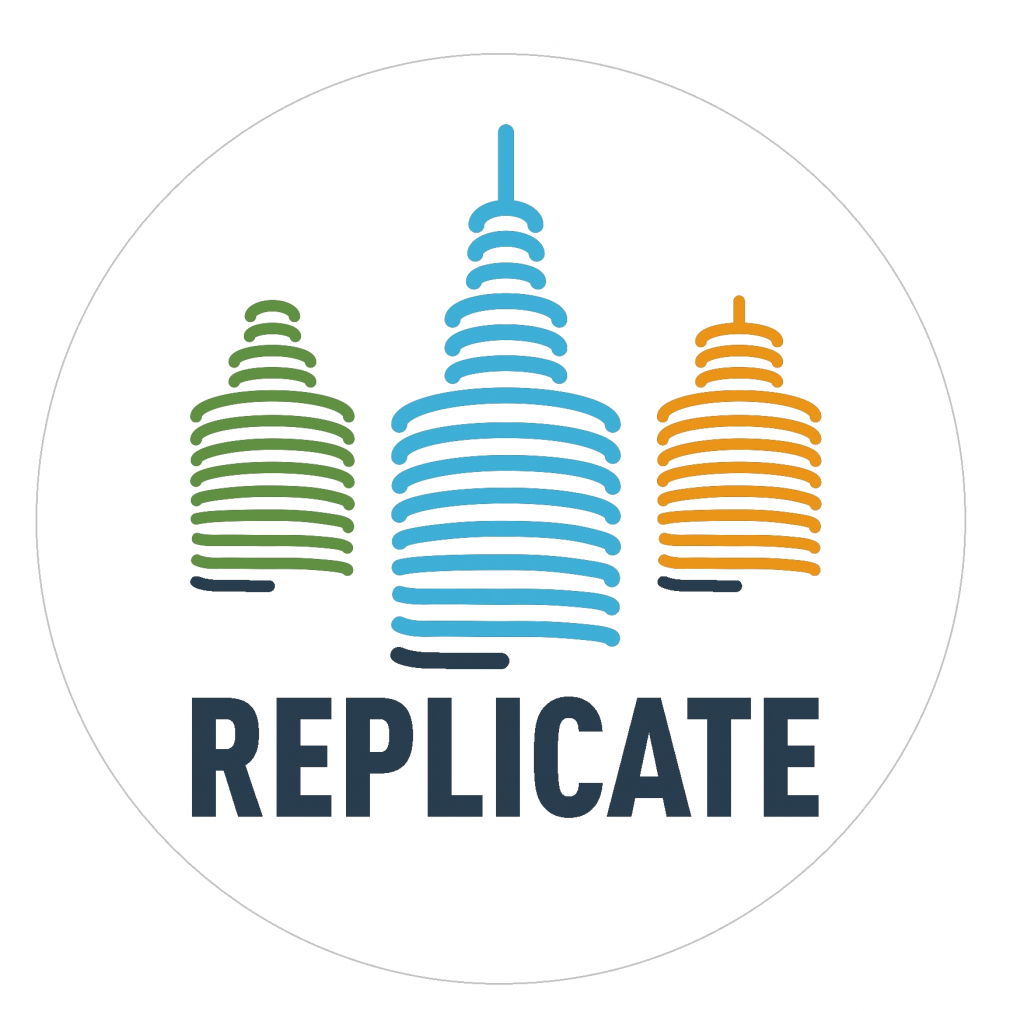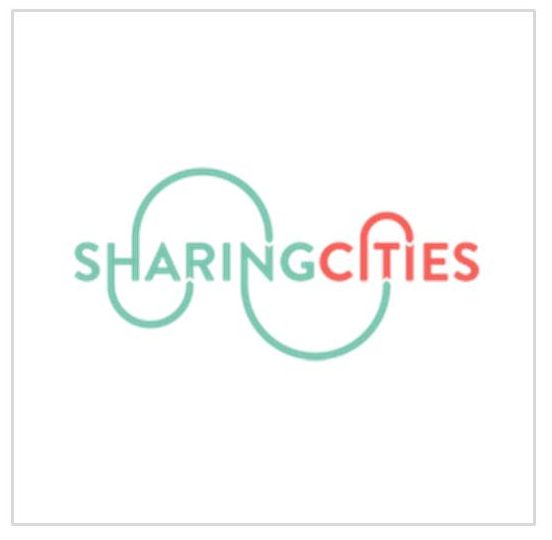Replicate project lighthouse city of Florence, together with the Cities of Valencia and London, shared different experiences about the response of the lighthouse cities to the Covid-19 and how the lighthouse projects has contributed to this response
During the last Friday, May 29, the webinar ‘The Smart City response to COVID-19’ took place. The three projects that took part were MatchUp (with the Lighthouse City of Valencia), Sharing City (with the Lighthouse City of London and one example from Milan) and we, the REPLICATE Project (with our Lighthouse City of Florence).
More than a hundred of people attended the online event moderated by Albert Engels (Ruggedised) and opened by Georg Houben (DG ENERGY – European Comission).
REPLICATE PROJECT:
The Replicate project is a co-financed by the H2020 programme contract number 691735 (SCC1 European Call for Smart Cities and Communities) and coordinated by Fomento San Sebastian. Replicate project aimed to develop and validate a sustainable city business model in the lighthouse cities of San Sebastian, Florence and Bristol to improve the transition process towards a Smart City in the fields of energy efficiency, sustainable mobility and ICTs/Infrastructures, accelerating the deployment of innovative technologies, increasing the quality of life of the citizens, and influencing the replication process. The project is currently facing last year of the project.
During the event ‘The Smart City response to COVID-19’, our Smart City-Lighthouse City Florence spoke about the “Smart Traffic Management“. The city, located in one of the most affected countries by the global pandemic, has been using the vehicles flow data, in the COVID-19 time, to get interesting and relevant conclusions by analyzing it.
Alessandra Barbieri (City of Florence – Replicate Project Manager) and Chiara Lorenzini (City of Florence – Replicate Mobility and KPI Data Analyst) were in charge of talking about how Florence measured the “temperature” of the city with traffic flow in the time of COVID-19.
“The cameras are able to count the vehicles and measure the speed of them and we want to expand this by adding 200 camera sensors and 300 bluetooth sensors for travel time estimation. Thanks to this technology, during the lockdown days, traffic flow reduction has been observed day by day to monitor citizen and city users activity”, explained Chiara Lorenzini, Replicate Mobility and KPI Data Analyst.
To conclude, they gave information on how the city is preparing to face the “Phase 3” during the next month of September. Mentioning measures related to the reopening of schools or the use of public transport.

You can download here the slides of the city of Florence during the webinar.
MATCHUP:
The lighthouse city of Valencia has been selected by the United Nations’ agency for International Telecommunication (ITU) to lead the international task force ‘Emergency response of Covid-19 cities’. Valencia will provide a global data-sharing platform and develop a policy framework for smart management of public health emergencies in cities.
Valencia gave birth also to the Spanish initiative Frena La Curva, a citizen platform to channel and organise social resilience to the COVID-19 pandemic by providing a bottom-up response complementary to that of government and public services.
SHARING CITIES:
Through Sharing Cities’ work on conducting deep energy building retrofits to make them more energy efficient, demand side response and integrated Sustainable Energy Management Systems, smart technology can help to ensure that more people live in low carbon, well connected homes.
The programme also recognises that zero-carbon targets will not be achieved only through top-down policy; it also requires bottom-up action from local stakeholders including citizens. Solutions developed by Sharing Cities such as the Digital Social Market to incentivize citizens towards positive behaviour change have an enormous potential to further increase the resilience of energy systems, create vibrant communities, encourage low-carbon lifestyles, and still look to achieve sustainability goals.
To discover more about ‘The Smart City response to COVID-19’, you can watch the video of the webinar on Youtube: https://www.youtube.com/watch?v=V-4nrKLnUpE




